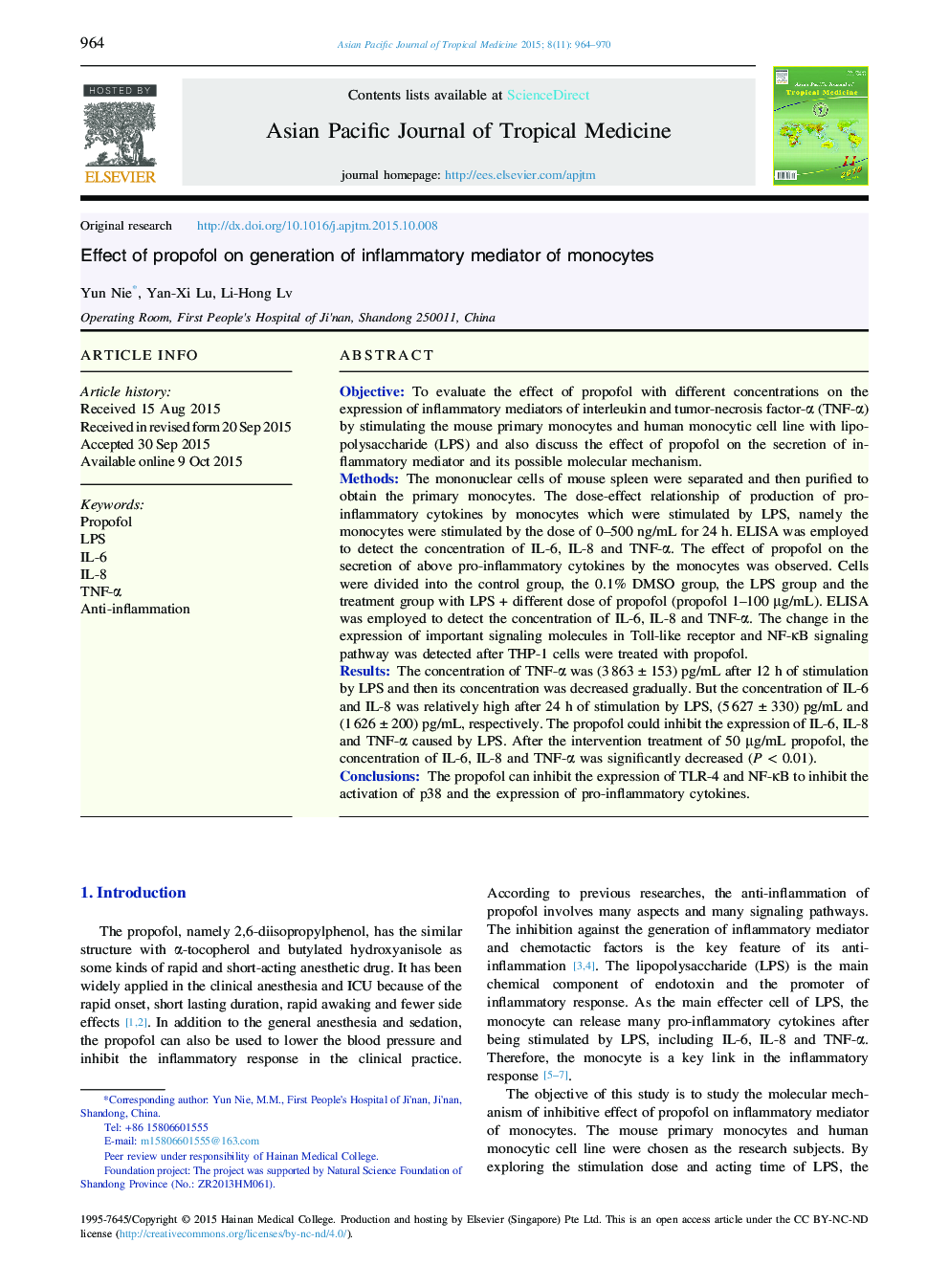| Article ID | Journal | Published Year | Pages | File Type |
|---|---|---|---|---|
| 3455371 | Asian Pacific Journal of Tropical Medicine | 2015 | 7 Pages |
ObjectiveTo evaluate the effect of propofol with different concentrations on the expression of inflammatory mediators of interleukin and tumor-necrosis factor-α (TNF-α) by stimulating the mouse primary monocytes and human monocytic cell line with lipopolysaccharide (LPS) and also discuss the effect of propofol on the secretion of inflammatory mediator and its possible molecular mechanism.MethodsThe mononuclear cells of mouse spleen were separated and then purified to obtain the primary monocytes. The dose-effect relationship of production of pro-inflammatory cytokines by monocytes which were stimulated by LPS, namely the monocytes were stimulated by the dose of 0–500 ng/mL for 24 h. ELISA was employed to detect the concentration of IL-6, IL-8 and TNF-α. The effect of propofol on the secretion of above pro-inflammatory cytokines by the monocytes was observed. Cells were divided into the control group, the 0.1% DMSO group, the LPS group and the treatment group with LPS + different dose of propofol (propofol 1–100 μg/mL). ELISA was employed to detect the concentration of IL-6, IL-8 and TNF-α. The change in the expression of important signaling molecules in Toll-like receptor and NF-κB signaling pathway was detected after THP-1 cells were treated with propofol.ResultsThe concentration of TNF-α was (3 863 ± 153) pg/mL after 12 h of stimulation by LPS and then its concentration was decreased gradually. But the concentration of IL-6 and IL-8 was relatively high after 24 h of stimulation by LPS, (5 627 ± 330) pg/mL and (1 626 ± 200) pg/mL, respectively. The propofol could inhibit the expression of IL-6, IL-8 and TNF-α caused by LPS. After the intervention treatment of 50 μg/mL propofol, the concentration of IL-6, IL-8 and TNF-α was significantly decreased (P < 0.01).ConclusionsThe propofol can inhibit the expression of TLR-4 and NF-κB to inhibit the activation of p38 and the expression of pro-inflammatory cytokines.
